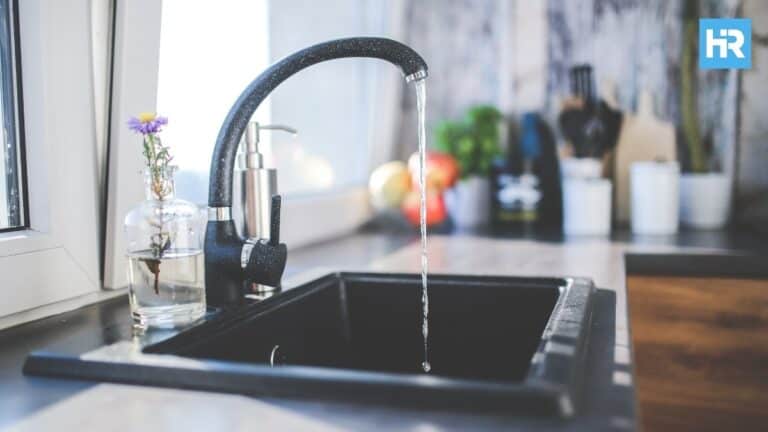
Heavy metal exposure is a hidden danger that can seriously harm health, especially for young people.
A recent study found that teens living near the Umicore plant have higher levels of lead and arsenic in their bodies compared to other teens in Flanders.
This worrying discovery raises questions about their health and the safety of their environment.
At the same time, arsenic in drinking water is a big problem in New Jersey, but it’s more prominent in the northern parts of the state.
The naturally occurring toxin has been linked to long-term health issues, particularly for children and pregnant women.
These two issues show how important it is to reduce exposure to these dangerous metals and take steps to protect people’s health.
Let’s look at the full story, exploring the facts, risks, and solutions.
- Teenagers living near the Umicore plant have higher levels of lead and arsenic in their bodies, along with noticeable health problems like issues with their brain function and breathing.
- Arsenic in New Jersey drinking water is a serious long-term health risk, especially for children and pregnant women, with northern parts of the state being more at risk because of the type of rocks and soil there.
- Simple actions, such as maintaining good hygiene and using water treatment systems, can help reduce the risk of exposure to the environment and at home.
Arsenic in New Jersey Drinking Water
Arsenic is a toxic element that occurs naturally in rocks and soil.
In New Jersey, particularly in the northern counties like Hunterdon, Mercer, Middlesex, and Somerset, arsenic can seep into groundwater, meaning it can end up in private wells, which many families use for drinking and cooking.
Public water systems are monitored for safety, but private well owners must test their water themselves.
In 2006, New Jersey set the strictest arsenic limit in the country at 5 micrograms per liter (µg/L), much lower than the federal limit of 10 µg/L.
The ideal goal is zero µg/L because even small amounts can harm health over time.
If levels are above the state limit, it’s important to switch to bottled water or install a treatment system immediately.
The Health Risks of Arsenic
Drinking water with arsenic can lead to serious health problems.
Long-term exposure increases the risk of cancers, including those of the liver, bladder, kidney, lung, and skin.
It can also cause heart disease, diabetes, and breathing issues.
Children, pregnant women, and unborn babies are especially at risk.
Arsenic can cross the placenta and harm fetal development.
Babies and young children who are exposed may experience long-term effects, such as lower IQ scores and developmental problems.
How to Know if There’s Arsenic in Water
Arsenic has no smell or taste; thus, lab testing is the only way to find it.
Public water systems are required to test regularly and treat the water if arsenic levels are too high.
For private wells, the New Jersey Private Well Testing Act (PWTA) requires testing every five years or when a property is sold or leased.
The PWTA mandates arsenic testing during real estate transactions and for leased properties in twelve northern counties, including Bergen, Essex, Hudson, Hunterdon, Mercer, Middlesex, Morris, Passaic, Somerset, Sussex, Union, and Warren.
Testing can be done through certified labs, which are listed on the New Jersey Department of Environmental Protection (NJDEP) website.
The NJDEP also provides maps showing areas at higher risk for arsenic.
These maps, available through the NJDEP website, indicate that Hunterdon, Mercer, Middlesex, and Somerset counties have some of the highest risks for arsenic contamination in private wells.
Treating Arsenic in Private Wells
Treatment is a must for private wells with high arsenic levels.
The NJDEP recommends whole-house treatment systems using granular ferric adsorption, which effectively reduces arsenic levels across all water taps in a home.
These systems typically cost between $1,500 and $3,000.
For households seeking a more affordable solution, point-of-use systems targeting a single tap cost between $500 and $1,000, though they leave other water sources untreated.
Financial assistance is available for New Jersey residents through the New Jersey Housing and Mortgage Finance Agency.
This program offers 0% interest loans to private well owners whose water exceeds arsenic MCLs, covering the cost of appropriate treatment systems.
Additional resources, including detailed guides on treatment systems and frequently asked questions, are available through the NJ Arsenic Awareness Initiative and local health departments.
Arsenic and Industrial Pollution
Arsenic is not only a natural problem.
Pollution from industries can also contribute to exposure.
A study conducted between February 2023 and January 2024 looked at teenagers living near the Umicore plant in Hoboken.
The study included 200 adolescents from Hoboken, Kruibeke, and Hemiksem, and it compared their levels of lead, cadmium, and arsenic to other teenagers in Flanders.
The findings were concerning.
Teenagers near the plant had 13% more lead in their blood and 10–23% more arsenic in their urine compared to others.
Many also had higher rates of breathing problems, slower reaction times, and issues with behavior and energy levels.
The study found that living farther from the plant or in areas where the wind carries pollution away resulted in lower exposure.
Good hygiene, like regular handwashing, also helped reduce contact with harmful metals.
On the other hand, touching contaminated soil or breathing in dust increases exposure.
Reducing Risks from Arsenic
Preventing arsenic exposure requires individual actions and company responsibility.
People can lower their risk by washing their hands, avoiding contaminated soil, keeping their homes ventilated, and eating healthy foods.
For those using private wells, regular testing and proper treatment systems are essential.
Industrial companies like Umicore also have a duty to reduce pollution.
While emissions have dropped in recent years, the Department of Care has warned that strict monitoring must continue.
If the company’s efforts are insufficient, stricter rules may be enforced to protect public health.
A Call for Continued Action
The findings from the Umicore study and the situation in New Jersey clearly show how important it is to deal with metal exposure.
Industries must take responsibility for the damage they cause to the environment and work to reduce it.
Still, communities need access to the right tools and information to protect their health.









